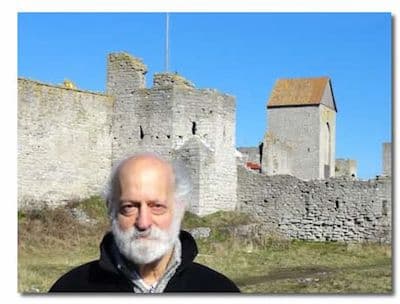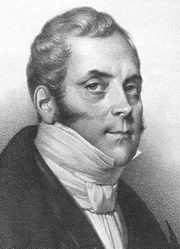
Daniel Auber
Daniel Auber, La muette de Portici, Act IV “Du pauvre seul ami fidele”
Richard Wagner personally met Auber during the early 1860’s in Paris, and unreservedly praised the profound impact La muette had on his development as a composer. “Such a vivid operatic subject was a complete novelty, the first real drama in five acts with all the attributes of a genuine tragedy, down to the actual tragic ending…Each of these five acts presented a drastic picture of the greatest vivacity, in which arias and duets in the conventional operatic sense were scarcely to be detected…Now, it was the entire act, as a large ensemble, that gripped one and carried one way.” It is without doubt that the genealogy of Wagnerian ‘music drama’ relates back to this earliest grand opera. The overwhelming success of La muette in Paris also drew the attention of Gioachino Rossini, director of the “Théâtre Italien” in Paris. Among his contractual duties agreed upon with the French government, was the composition of a brand new “Grand Opéra.” Rossini contemplated a variety of subjects, before ultimately settling on the story of legendary Swiss marksman William Tell, a historical figure made famous by Friedrich Schiller’s play of the same name. The finished opera, exploiting themes of political independence and pastoral tranquility within a picturesque alpine setting, premiered in 1829.
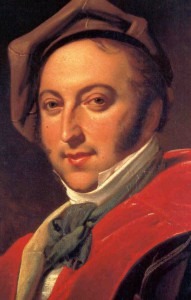
Gioachino Rossini
Restez! Il est plus d’un coupable
Comme lui nous aurions du faire
Today, this opera has been largely forgotten, but thanks to varied incorporations within expressions of popular culture, the “Overture” remains an instrumental favorite. Let us not forget that it was Franz Liszt — later to become Richard Wagner’s father in law — who promptly fashioned his famous piano transcription. Liszt’s most famous transcription, however, was reserved for a work that consolidated the genre of “Grand Opéra.” Taking themes from Giacomo Meyerbeer’s Robert le diable (Robert the Devil) of 1831, his Reminiscences de Robert le diable sold all 500 copies on the day of publication and saved the publisher Maurice Schlesinger from bankruptcy. The tremendous popularity of the opera spawned a number of artistic companions, among them the Grand duo concertante for cello and piano by Frederic Chopin, and two paintings by Edgar Degas.
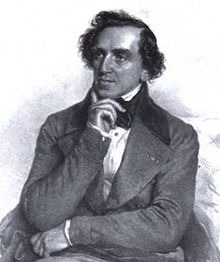
Giacomo Meyerbeer
Frederick Chopin was in the audience during the premier performance of the opera, and wrote, “If ever magnificence was seen in the theatre, I doubt that it reached the level of splendor shown in Robert le diable… It is a masterpiece, and Meyerbeer has made himself immortal.” Giacomo Meyerbeer — actually born Jacob Liebmann Beer in Tasdorf near Berlin — studied with Antonio Salieri, Carl Friedrich Zelter and Abbé Vogler. According to Ignaz Moscheles, Jacob Beer was “one of the greatest virtuosi of his period.” Nevertheless Beer was determined to make his name as an operatic composer in Paris, and after spending some time in Italy changed his name and became a superstar in the French capital. Robert le diable, with the libretto penned by Eugène Scribe, represents the merging of the German orchestral style with the Italian vocal tradition and the French theatrical spectacle. By 1834, the opera had received over 100 performances in Paris, and King Frederick William III of Prussia, who attended the second performance, invited to stage Robert in Berlin.
Giacomo Meyerbeer, Robert le diable, Act 5, Scene 3
Que faut-il faire?
Mon fils, ma tendresse assidue
Chantez, troupe immortelle
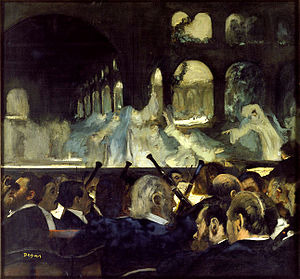
Robert le Diable by Edgar Degas

